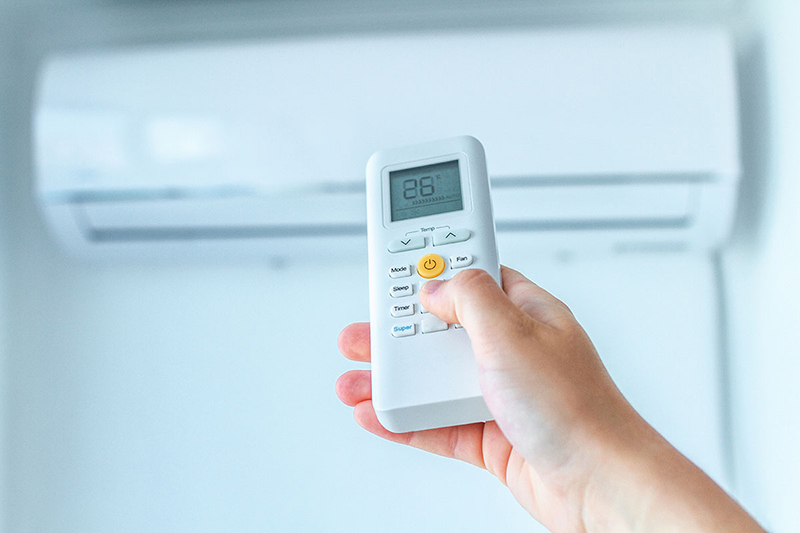
In our last article, we highlighted that air conditioners are bad for the environment, but that you can do your part as an informed consumer to make better choices. There’s no immediate solution to this, and it won’t instantly turn your air conditioner into an environmentally friendly one, but you can find many ways to reduce its environmental impact. You can begin by assessing what you already have, and what you can do to achieve an environmentally friendly air-conditioning lifestyle. If you’re not used to it, it can be a little tricky at first. However, over time, it’ll get easier and you’ll see positive benefits in your electricity bills as well. Turn on Eco-mode Turning on the eco mode air conditioner option runs your unit’s compressor slower so that it can relieve the pressure on the condenser. It takes less energy to operate your air conditioner system. Even though it reduces your air conditioner’s cooling capacity, it offers greater efficiency and makes the system strong and steady. You can expect your air conditioner to run for hours without any issue very comfortably. In addition, this mode helps to boost the longevity and maintenance of your air conditioner. Upgrade Your Air Conditioner System Air conditioners are expected to last between 10 and 15 years. Beyond that, you risk higher electricity bills with an air conditioner that is likely to be less energy efficient. Modern air conditioners also use better refrigerants, like R32 gas or R32 refrigerant instead of R-410 and R22. You can either pay a fee to upgrade your system or buy a new one, like the Daikin iSmileEco air conditioner that uses this new refrigerant. Proper Disposal Taking steps to improve your air conditioner’s environmental friendliness doesn’t just involve your decisions at the start in during its lifespan - it also includes how you manage it at its end. Air conditioners contain toxic ozone-depleting refrigerants that shouldn’t be vented into the atmosphere. Disposing of your air conditioner properly means that you should take it to a certified recycling centre so it can be broken down. For example, you can bring it to Gain City’s recycling centre at their Sungei Kadut facility. There, the professionals will dismantle and separate the various types of metal and plastic components to be sent for proper recycling using special refrigerant recovery equipment. Maintenance Regular maintenance doesn’t just keep your air conditioner working in optimal condition: it also helps to boost its efficiency and reduce its environmental impact. Dirty air filters and blocked vents can cause poor air circulation and impede its operating efficiency. An air conditioner that is routinely serviced and maintained works properly and makes sure that your system is energy efficient. Clean Your Air Conditioner’s Ducts Some of us use ductless air conditioners while the rest use ducted systems. If you belong to the latter, you need to clean the ducts on a regular basis. This is because dirt and debris can accumulate in the ducts, releasing bacteria and dirt into the indoor air wherever it’s in operation. If possible, opt for ductless systems that are more beneficial to people and the environment. They also require less intensive maintenance.